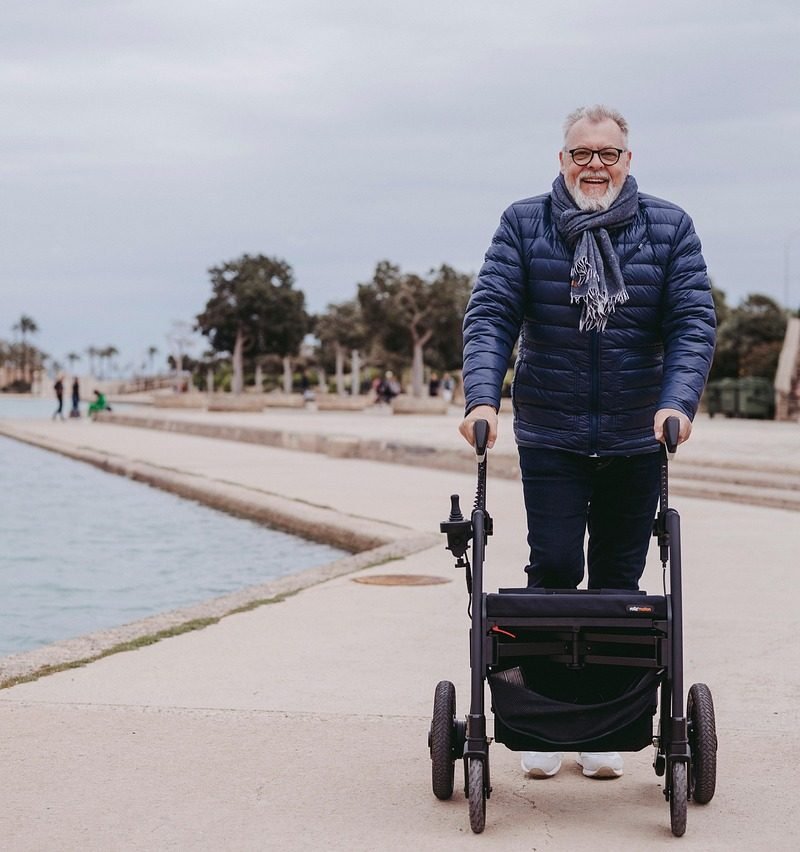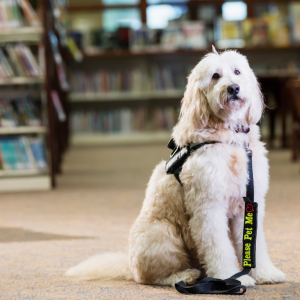Navigating day-to-day tasks like shopping can be a challenge when you have a disability, but with the right preparation and knowledge, it can be made much easier. The UK is steadily improving its accessibility for disabled individuals, offering quiet times, additional support, and schemes like the sunflower lanyard to assist those with hidden disabilities. Planning your shopping trips with these resources in mind ensures a more pleasant and stress-free experience. In this post, we’ll explore the best times to do your shopping if you’re disabled, the assistance available, and how to make the most of your trips.
Quiet Times for Stress-Free Shopping
For disabled shoppers, avoiding crowds is often a priority. Many UK supermarkets and stores now offer “quiet hours,” specially designated times when the shopping environment is calmer and more sensory-friendly. These quiet times typically take place early in the morning or late in the evening. Stores like Tesco, Asda, and Sainsbury’s have introduced these initiatives to reduce loud music, dim harsh lighting, and minimize announcements, creating a more relaxed atmosphere for shoppers with sensory challenges or anxiety.
The best time for shopping in general is during the weekday mornings between 9 am and 11 am. By this time, the early-morning rush has subsided, but the lunchtime crowd has not yet begun. Mondays and Tuesdays tend to be the quietest days for many stores, as weekends and Fridays often see a surge in foot traffic.
It’s worth checking with your local store as some chains provide specific details on quiet hours. For example, Asda offers quiet hours on Tuesdays from 2 pm to 3 pm, and Morrisons runs theirs on Sundays from 10 am to 11 am. Shopping during these times ensures that you won’t face the usual hustle and bustle, making it easier to navigate aisles and find assistance when needed.
Accessibility in UK Stores
UK supermarkets and shopping centres are continually improving their facilities to cater to disabled shoppers. From designated parking spaces to wide aisles and step-free access, there’s been significant progress in ensuring a smoother shopping experience for individuals with physical disabilities.
Most supermarkets like Tesco, Aldi, and Lidl provide accessible toilets, and larger stores even offer Changing Places toilets, which are equipped with hoists and adjustable changing benches for those who require them. These facilities can often be located on store maps, which are usually available on the store’s website or app.
For those with mobility challenges, mobility scooters and wheelchairs are frequently available at larger stores. Retailers like Marks & Spencer and Waitrose offer free loaning services for wheelchairs, ensuring you can move around the store comfortably. If you’re planning to visit a smaller local store, it’s always a good idea to call ahead to confirm what accessibility options are available.
Carers and Assistance While Shopping
Disabled shoppers can also rely on help from carers, whether they’re family members, friends, or professional support workers. Many supermarkets and shopping centres allow carers to assist disabled individuals during shopping trips. Carers can help locate products, manage trolleys, or carry shopping bags, reducing some of the physical strain or cognitive load of shopping.
Stores in the UK recognise the importance of carers and often offer discounts or free admission where necessary. For instance, many leisure and shopping destinations provide free entry or reduced fees for carers accompanying disabled shoppers. This level of support extends to supermarkets as well. In many cases, carers are welcome to accompany disabled shoppers at no extra cost when visiting in-store cafes or participating in supermarket events.
Additionally, some stores provide staff training to better assist disabled individuals. If you need help during your shopping trip, don’t hesitate to approach a member of staff. In many cases, they’ll be happy to guide you to the correct aisle, offer packing assistance, or address any concerns.
Sunflower Lanyard Scheme for Hidden Disabilities
The sunflower lanyard scheme is a fantastic initiative designed to support shoppers with hidden disabilities. Many disabilities, such as autism, chronic fatigue, and mental health conditions, are not visible to others. Wearing a sunflower lanyard signals to store staff and fellow shoppers that you may require additional support, understanding, or patience.
The sunflower lanyard is widely recognised across the UK and is available for free in most supermarkets, including Tesco, Sainsbury’s, and Morrisons. You can also order one online if needed.
When wearing the lanyard, you’ll often find that staff go out of their way to assist you. They may offer to help pack your bags, provide extra time at the checkout, or allow you to use priority queues. This discreet yet effective method ensures that individuals with hidden disabilities can shop with greater confidence and ease.
The lanyard is not a requirement, of course, but it’s a helpful tool for those who want to signal their need for additional assistance without having to explain their situation repeatedly. It can also make navigating crowded or overwhelming environments much more manageable.
Planning Your Trip for the Best Experience
The key to a smooth shopping experience is careful planning. By choosing the best times to shop and taking advantage of the support available, you can reduce stress and enjoy a more efficient trip.
Start by researching your preferred store’s quiet times and accessibility features. Many supermarket websites have accessibility information readily available, including details on parking, mobility equipment, and store layout. Make a shopping list in advance to minimize the time spent browsing aisles, especially if standing for long periods is a challenge.
If you use mobility aids or rely on a carer, make sure they’re aware of your plans and schedule. If you prefer online shopping, consider using services like Tesco’s or Sainsbury’s home delivery, which allow you to select a delivery slot that works for you. Alternatively, click-and-collect services can save time and energy while still allowing you to shop at your convenience.
The Role of Staff in Making Shopping Accessible
One of the most valuable resources for disabled shoppers is the staff working in stores. UK supermarkets are increasingly training their employees to better assist customers with disabilities. Many staff members are trained to recognize sunflower lanyards and provide the necessary help, such as locating products, carrying items, or offering a quiet checkout experience.
If you feel overwhelmed or in need of assistance, don’t hesitate to ask for help. Store staff are often willing to go above and beyond to make your experience more comfortable. Whether you need extra time to unload your trolley or guidance on finding a specific product, their support can make a significant difference.
Why Shopping at the Right Time Matters
Choosing the right time to shop as a disabled individual can transform your experience. By planning trips during quiet times, using accessibility features, and leveraging resources like the sunflower lanyard and carer assistance, you can reduce stress and focus on enjoying your day.
The UK’s supermarkets and shopping centres are working hard to become more inclusive and accessible. While there’s still progress to be made, the improvements in quiet times, training for staff, and available facilities are making shopping more manageable and enjoyable for disabled individuals across the country.
Don’t forget to use your Blue Badge if you have one whenever shopping.
Shopping doesn’t have to be a daunting task. With the right strategies and support, you can take full advantage of what UK stores have to offer while ensuring a safe, comfortable, and convenient experience tailored to your needs.
Discover more from The Blue Badge Blog
Subscribe to get the latest posts sent to your email.




Leave a Reply